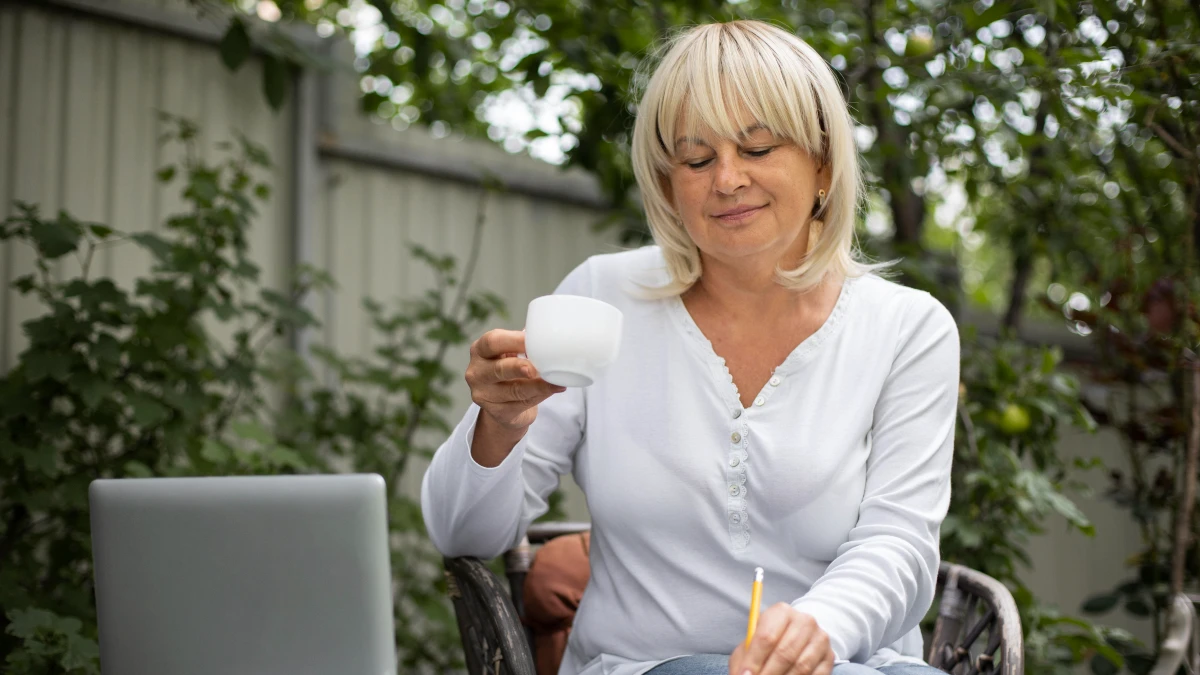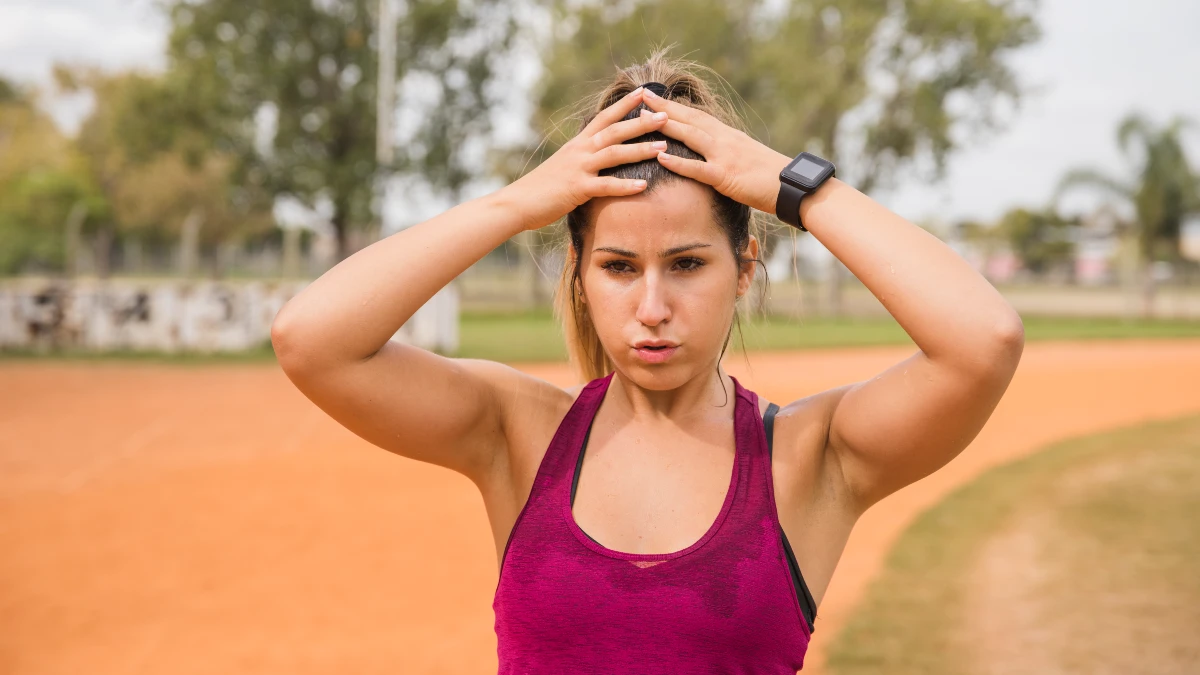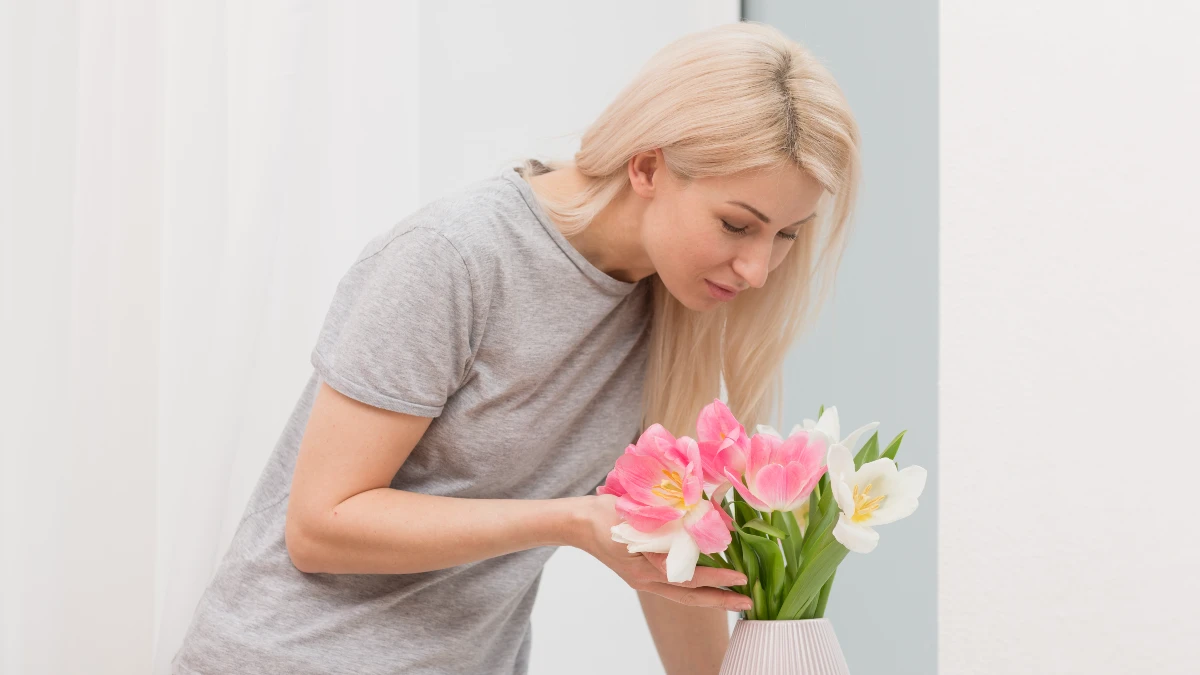Hot flashes and sleepless nights are ruining your life, but your doctor only offers hormones or tells you to tough it out. You feel completely stuck. Meanwhile, women in
Europe get real relief from their doctors with plant-based medicine and acupuncture. They see menopause differently, not as a disease to be fixed, but a natural transition to be supported.
This guide breaks down their proven, non-hormonal methods. You’ll get a simple, actionable plan for 2025 to manage your symptoms and feel in control again.
Beyond Hormones: European Strategies for Menopause Management Without HRT
Many European women navigate menopause without hormone replacement therapy (HRT). Often adopting a holistic approach that combines practical lifestyle changes with non-hormonal treatments. The foundation of this strategy typically involves significant lifestyle adjustments.
This includes managing diet by increasing calcium, fruits, and vegetables, and engaging in regular weight-bearing and resistance exercise to support bone and heart health. Women also proactively manage hot flashes by avoiding triggers like spicy foods and caffeine, using fans, and wearing layered clothing.
When symptoms are more severe, non-hormonal medical options are often explored. Healthcare professionals may prescribe low-dose antidepressants (SSRIs or SNRIs) or gabapentin.
Which have been shown to effectively reduce the frequency and severity of hot flashes. For vaginal dryness, over-the-counter lubricants and moisturizers are a common first-line solution.
Complementary therapies also play a significant role in managing the psychological and physical impacts of menopause. Cognitive Behavioral Therapy (CBT) is an evidence-based option used to reframe negative thoughts about symptoms, which can improve sleep and overall mood.
While herbal remedies like black cohosh are popular, their evidence is inconsistent. Ultimately, the approach is highly individualized, emphasizing a shared decision between the woman and her healthcare provider.
Why Your Doctor Only Talks About HRT
Menopause Management: A Tale of Two Approaches
🇺🇸 The U.S. Perspective
View: Menopause often seen as an estrogen deficiency, a “disease” to be fixed.
Cultural Lens: Emphasis on youthfulness; aging perceived as a problem.
Primary Solution: Hormone Replacement Therapy (HRT) frequently promoted as the main course of action.
Regulation: Herbal remedies are “dietary supplements” with limited FDA oversight.
🇪🇺 The European Approach
View: Menopause embraced as a natural, albeit challenging, life transition.
Cultural Lens: Values wisdom with age; focuses on holistic well-being.
Broad Solutions: Wider acceptance of diverse treatments beyond HRT, including phytotherapy.
Regulation: Plant-based medicines are government-regulated, ensuring quality and dosage.
Global HRT Consumption:
North America accounts for a significant share, with the U.S. being the largest user worldwide.
~60%
(Estimated global HRT market share for North America)
“In Europe, the perspective shifts from merely replacing hormones to supporting the entire person through a natural process, validating their experience rather than pathologizing it.”
— Dr. Elara Vance, Gynecologist & Holistic Health Advocate
The way doctors treat menopause is different in the U.S. and Europe. It comes down to how they see it. In the United States, menopause is often treated like a disease. The idea is that your body is low on estrogen, and you need to “fix” it.
This view is tied to a culture that values youth. Getting older is seen as a problem to solve with a prescription. This makes HRT seem like the main, and sometimes only, solution.
In many European countries, menopause is seen as a natural life change. It can be tough, but it’s not a sickness. This view looks at your whole well-being—how you feel in your mind and body.
In cultures where getting older is seen as gaining wisdom, the goal isn’t to “replace” what’s lost. It’s to support your body through the change. This opens the door to many other types of treatment.
You can see this difference in the numbers. North America is the biggest user of HRT in the world. The U.S. uses more than any other country.
The way healthcare is set up also matters. In countries like Germany, plant-based medicine (phytotherapy) is regulated by the government. A German doctor can prescribe an herbal product knowing it’s safe and has the right dose. In the U.S., these same herbs are sold as “dietary supplements.”
The FDA doesn’t check them for quality or if they work. This means you have to find them on your own, without a doctor’s guidance. One system includes these options in regular care. The other forces you to choose between standard medicine and “alternative” treatments.
3 Lifestyle Changes That Actually Work for Menopause
A Practical Guide: Lifestyle as Menopause Medicine
Focus 1: Phytoestrogen-Rich Foods
These plant-based compounds can gently help balance hormone fluctuations.
Examples: Chickpeas, lentils, flaxseed, soy, and whole grains.
Focus 2: Anti-Inflammatory Staples
Calms systemic inflammation, which is linked to more severe hot flashes and mood swings.
Examples: Olive oil, fatty fish (salmon, mackerel), walnuts, and leafy greens (spinach, kale).
-
For Bone Density (Weight-Bearing) Helps slow bone loss (osteopenia).
Try: Brisk walking, dancing, jogging, tennis. -
For Muscle & Metabolism (Strength) Fights age-related muscle loss (sarcopenia).
Try: Bodyweight squats, lunges, resistance bands. -
For Mood & Stress (Mindful) Lowers cortisol and anxiety levels.
Try: Yoga, Tai Chi, mindful stretching.
Additional
Research confirms that regular, mindful exercise can significantly reduce anxiety and depressive symptoms during menopause.
— 2024 Review, Journal of Clinical Medicine
In Europe, simple lifestyle changes are treated as real medicine. They are often the first thing a doctor will recommend. Things like what you eat, how you move, and how you handle stress can have a big impact on your symptoms.
Eat the Mediterranean Way to Cool Hot Flashes
European health groups often suggest the Mediterranean diet. This isn’t just vague advice to “eat healthy.” It’s a specific plan that fights inflammation. The diet is full of fruits, vegetables, beans, whole grains, nuts, and olive oil. You eat some fish and yogurt, but not much red meat.
The proof is strong. One study found that women who followed this diet were 20% less likely to have hot flashes. A newer 2025 study showed even better results. Women who stuck to the diet closely had 80% lower odds of bad hot flashes and 83% lower odds of sexual symptoms like vaginal dryness.
How does it work? The diet is packed with good stuff that calms inflammation in your body. It also has a lot of fiber, which can help keep your hormone levels more stable. This makes the diet a powerful tool to help your body during this change.
Use Movement as Medicine for Your Body and Mind
Exercise is another key part of the European plan. Regular activity is proven to help with some of the worst menopause symptoms. It can reduce hot flashes, help you sleep better, and lift your mood.
Different types of exercise are recommended for different problems.
- For your bones: Walking, running, or dancing helps keep your bones strong. Bone loss can speed up after menopause, so this is very important.
- For your mind: Yoga and tai chi are great for stress and anxiety. These calming exercises can help you feel better when your mood is low.
Control Stress to Stop Hot Flashes
Stress has a direct link to hot flashes. Your brain’s internal thermostat gets a little shaky during menopause because of changing hormones. When you get stressed, your body releases hormones like cortisol. This can mess with your thermostat even more and trigger a hot flash.
So, managing stress is a direct way to treat hot flashes. Health experts in Europe recommend things like meditation, mindfulness, and yoga. These practices help calm your nervous system. It also helps to avoid things that can trigger hot flashes, like caffeine, alcohol, and spicy food. Keeping your bedroom cool and dark can also help with night sweats.
Plant Medicine That European Doctors Actually Prescribe

The biggest difference between the U.S. and Europe is how they handle herbal medicine. In the U.S., herbs are sold as supplements with little government oversight. You never really know if the product is good quality or has the right dose.
Germany does it differently. There, high-quality herbal products are treated like real medicine. A government agency checks them for safety and quality before they can be sold. This means a doctor can prescribe an herb with confidence. It makes plant medicine a real treatment option, not just something you buy at a health food store.
Black Cohosh: The Top Herb for Hot Flashes
Black cohosh is one of the most popular and well-studied herbs in Europe for menopause. It helps with hot flashes, sweating, sleep problems, and feeling anxious.
One high-quality study showed how well it can work. After eight weeks, women taking black cohosh had a 77% drop in their total menopause symptoms. The group taking a placebo only had a 38% drop.
The biggest improvements were in hot flashes and mood. It is also very safe. Studies with thousands of women have found that side effects are rare and usually mild.
Red Clover: A Plant That Acts Like Estrogen
Red clover is another popular herb. It’s full of something called isoflavones. These are plant-based compounds that can act like a weak version of estrogen in your body. This makes red clover helpful for symptoms caused by low estrogen.
Studies show it can reduce how often you get hot flashes, especially if you have them a lot. It may also help keep your bones and heart healthy. But because it acts like estrogen, you should be careful. If you have a history of hormone-sensitive cancer, like breast cancer, you should avoid it. Always talk to a doctor before taking it.
Other Helpful European Herbs
The European approach uses a toolkit of different herbs for different problems.
- St. John’s Wort: Good for mood swings and feeling down. But it can interfere with many prescription drugs, so you must talk to a doctor first.
- Sage: A traditional remedy for sweating and hot flashes.
- Hops and Passion Flower: These are used to help with sleep and anxiety.
- Vitex / Chaste Berry: This is helpful during perimenopause to help regulate your cycle and ease irritability.
| Herb | What It Helps With | What the Science Says | Things to Know |
| Black Cohosh | Hot Flashes, Night Sweats, Mood | A study showed it cut hot flashes and mood issues. | Very safe in studies. |
| Red Clover | Hot Flashes, Bone & Heart Health | Can reduce hot flashes and may help cholesterol and bones. | Avoid if you’ve had estrogen-sensitive cancer. |
| St. John’s Wort | Mood Swings, Feeling Down | Often used for mood support. | Can interfere with many other drugs. Talk to a doctor. |
| Sage | Sweating, Hot Flashes | A traditional remedy for sweating. | Generally safe. |
How to Train Your Brain to Reduce Hot Flashes

Many menopause symptoms, like hot flashes and anxiety, aren’t just about hormones. They are also connected to your brain and how you react to them. Treatments that focus on your mind can be very powerful.
Acupuncture: A Proven Way to Help Hot Flashes and Sleep
Acupuncture has a lot of good science behind it for menopause symptoms. A large review of 12 different studies found that acupuncture cut the number of hot flashes by about 35% and made them 44% less severe.
What’s really interesting is that the good effects lasted for up to three months after the treatments stopped. This suggests acupuncture might help reset your body’s thermostat. It also helps with sleep. Another big review found that it cut the risk of sleep problems for menopausal women.
Even with this proof, the main menopause group in North America does not recommend acupuncture. This is a key reason why your doctor in the U.S. might not mention it. They are looking at the same science but have a different view on it.
Cognitive Behavioral Therapy (CBT): Change Your Thoughts, Change Your Symptoms
CBT is a top-tier non-hormonal treatment that is backed by a lot of science. Both European and North American medical groups recommend it.
It’s a type of talk therapy that helps you change negative thought patterns. For example, when a hot flash starts, you might think, “This is awful, everyone is looking at me.” CBT teaches you to challenge that thought and use coping skills, like slow breathing.
The hot flash might still happen, but you won’t have a panicked reaction to it. This can make the hot flash itself feel less intense. CBT is also great for the low mood and anxiety that often come with menopause.
While everyone agrees CBT works, it’s not often offered in the U.S. It’s faster for a doctor to write a prescription than to refer you for therapy sessions.
Your 5-Step Plan to Manage Menopause Without HRT

You can use these ideas to build your own menopause plan. This is about taking an active role in your health. Here is a step-by-step guide you can use today.
Track Your Symptoms
First, you need to know what’s going on. Keep a symptom diary for a few weeks. This will help you and your doctor. Write down:
- What is the symptom? (hot flash, anxiety, etc.)
- How often does it happen?
- How bad is it? (on a scale of 1 to 5)
- What was happening right before? (Did you drink coffee? Have a stressful meeting?)
Start with Lifestyle Changes
Start with the basics. Make a simple checklist for this week:
- Diet: Try two new things from the Mediterranean diet. Maybe you can switch to olive oil for cooking or add beans to two meals.
- Exercise: Plan three 30-minute walks and two 15-minute yoga sessions.
- Stress: Try a 10-minute breathing exercise every day using a free app.
Find a Fix for Your Biggest Problem
Look at your symptom diary. What is your worst symptom? Use this guide to find a possible solution.
- If you have bad hot flashes and can’t sleep: Look into Black Cohosh or acupuncture.
- If you have mood swings and anxiety: Look into St. John’s Wort (with a doctor’s help), CBT, or yoga.
| Therapy | European Menopause Society Position | North American Menopause Society Position |
| Cognitive Behavioral Therapy (CBT) | Recommended | Recommended – Strongest Evidence |
| Clinical Hypnosis | Some evidence | Recommended – Strongest Evidence |
| Antidepressants (SSRIs/SNRIs) | Can be offered as an alternative | Recommended – Strongest Evidence |
| Gabapentin (Nerve pain drug) | Can be offered as an alternative | Recommended – Strongest Evidence |
| Acupuncture | Evidence is limited | Not Recommended – Limited Evidence |
| Black Cohosh / Herbal Remedies | Evidence is not clear | Not Recommended – Limited Evidence |
| Soy / Phytoestrogens | Evidence is not clear | Not Recommended – Limited Evidence |
| Exercise | Helps quality of life, but not clear for hot flashes | Not Recommended (for hot flashes) – Limited Evidence |
Find the Right Help in the US
Finding a professional who knows about these methods can take some work.
- For Herbs: Look for a licensed Naturopathic Doctor (ND).
- For Acupuncture: Find a Licensed Acupuncturist (L.Ac.).
- For CBT: Find a licensed therapist who specializes in health issues.
Step 5: How to Talk to Your Doctor
When you have your diary and research, you can have a better talk with your doctor. Try using these phrases:
To start the conversation
“I’ve been tracking my symptoms, and my main problems are hot flashes and poor sleep. I’d like to talk about a full plan to manage them.”
To bring up other options
“I’ve been reading about non-hormonal options with good evidence. I’m interested in the studies on acupuncture for hot flashes. What do you think about adding that to my plan?”
To ask for proven therapy
“The guidelines from both the U.S. and European menopause groups recommend CBT for hot flashes and anxiety. Can you give me a referral to a therapist?”
To state your preference
“I know HRT is a good option, and I want to keep it in mind. But first, I’d like to try lifestyle changes and other proven non-hormonal treatments. I’m hoping you can support me with this approach.”
If you feel like your doctor isn’t listening, you always have the right to get a second opinion.
What to Do Next
The “European method” is not a secret cure. It’s a way of thinking about menopause that gives you more choices. It starts with lifestyle changes that are proven to work.
It uses tested plant medicines and mind-body tricks as real medical tools. It gives you a range of options beyond just saying yes or no to hormones.
Menopause is not a disease. It is a new stage of life that you can manage with good information and support. HRT is a great option for many women. But the science shows that there are powerful, effective ways to feel better without it.
You can use this guide to build a plan that works for you, feel more in control, and have better talks with your doctor.


